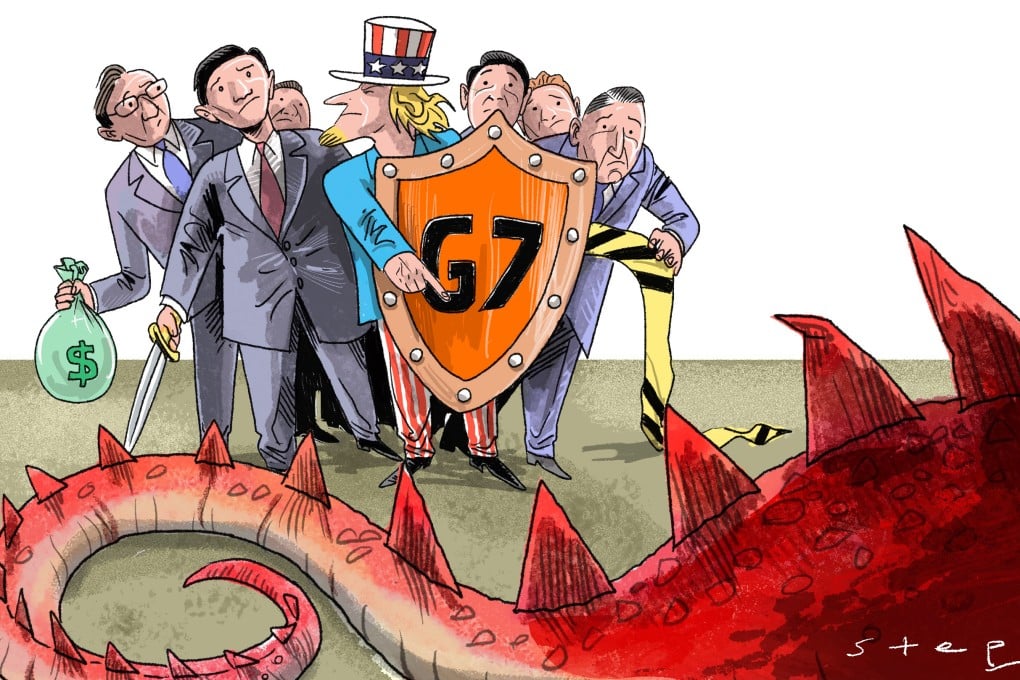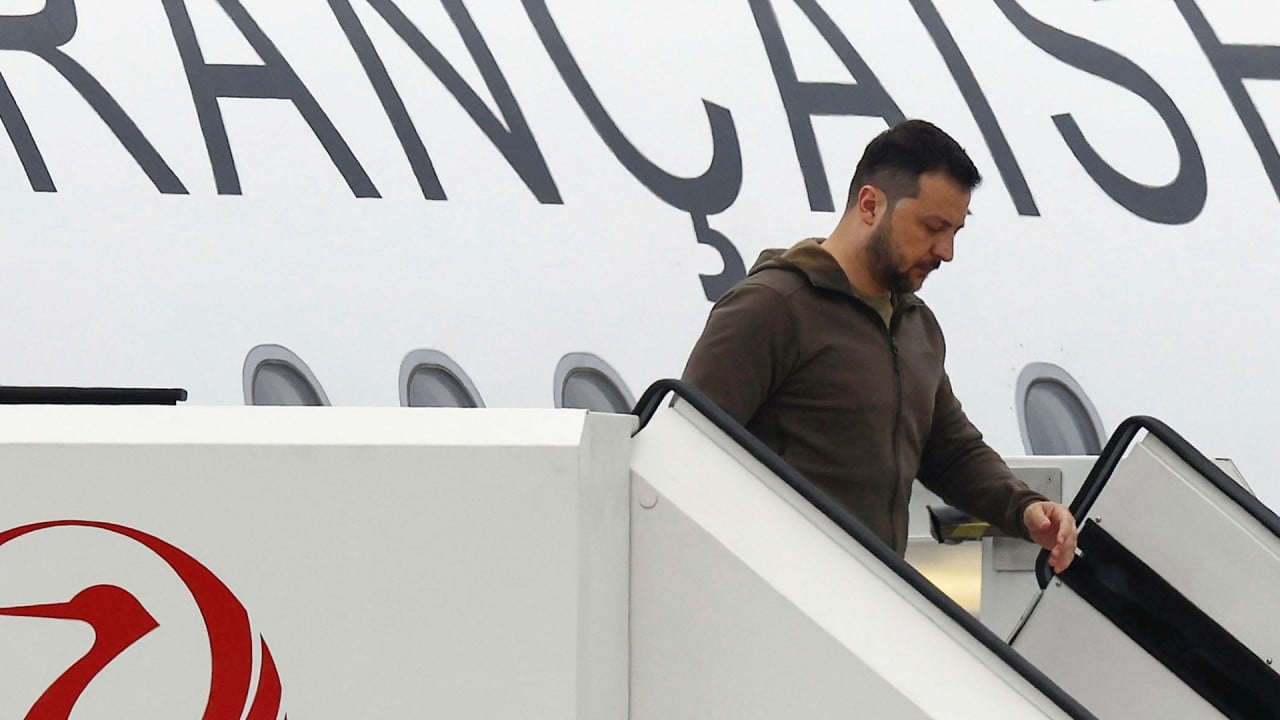Advertisement
Opinion | Irrelevant G7 is desperate to distract world from its own failures by blaming China
- The G7 summit’s failure to seriously address the deficit in funding for global development risks making it appear out of touch with the real world
- By prioritising its geopolitical goals, the G7 is turning itself into an economic Nato and destroying global peace and prosperity
Reading Time:4 minutes
Why you can trust SCMP
21

For all the fanfare around its most recent meeting, the G7 summit in Hiroshima speaks to the group’s struggles to remain relevant and effective in coordinating solutions to major global issues.
Advertisement
The grouping has experienced a steady decline in its share of the global economy over the decades. Its members accounted for about 63 per cent of global gross domestic product when it was founded in 1975, falling to about 52 per cent by the time of the 2008 global financial crisis and reaching 44 per cent in 2021.
G7 nations are also seeing their soft power wane. Non-Western nations are increasingly willing to stand up for their national interests and demand a say in world affairs. More countries are expressing interest in trading with each other in their own currencies.
The Organisation of the Petroleum Exporting Countries and other major oil producers went ahead with surprise cuts to oil production in April despite requests from the United States not to do so. Meanwhile, not many countries from the Global South went along with the West’s sanctions on Russia following its invasion of Ukraine.
As the summit host, Japan might have sensed the waning ability of the G7 to dictate the course of world affairs and invited several non-member countries to Hiroshima. This decision also suggests the diminishing global influence of the Western powers.
Moreover, the summit’s failure to seriously address the deficit in funding for global development risks making it appear out of touch with the real world. The grouping did very little in the way of financial aid announcements or addressing any of the top priorities of the Global South, including the US$100 billion in climate finance mobilisation for developing countries the G7 committed to but has yet to provide.

Advertisement

